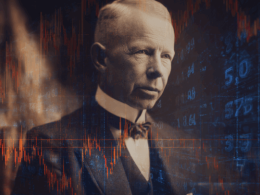May 21, 2012
Stocks Drop as Europe Takes Center Stage
by Bob Doll, BlackRock
 Although US economic data was generally good last week, stocks sank sharply as investor fears over Europe's debt problems intensified. For the week, the Dow Jones Industrial Average fell 3.5% to 12,369, the S&P 500 Index dropped 4.3% to 1,295 and the Nasdaq Composite declined 5.3% to 2,778.
Although US economic data was generally good last week, stocks sank sharply as investor fears over Europe's debt problems intensified. For the week, the Dow Jones Industrial Average fell 3.5% to 12,369, the S&P 500 Index dropped 4.3% to 1,295 and the Nasdaq Composite declined 5.3% to 2,778.
At present, the focus of the European debt crisis is on Greece, particularly on next month's elections. The upcoming elections look to be turning into a referendum on whether or not Greece will remain part of the eurozone. Should the more extreme parties in Greece gain popularity, the greater the likelihood that the country exits the eurozone. The more traditional Greek political parties, as well as the powers that be in Europe as a whole, are pushing for Greece to remain part of the euro, but the outcome is far from clear and the uncertainty has rattled global financial markets.
Of course, Greece is capturing most of the headlines, but perhaps more worrisome is the debt contagion that appears to be spreading to other countries such as Spain and Italy. It is important to note, however, that contagion is not spreading as widely or as deeply as it did last year. This resilience reflects the sounder position of both the global financial system and global economic indicators, although it is difficult to take too much comfort in this fact since a broader resolution of the eurozone crisis is not yet in sight.
In some sense, the only hope for the eurozone is to lower monetary policy further, which would also push the value of the euro lower. Additionally, we believe the European Central Bank would have to engage in larger-scale bond purchases to improve financial market liquidity. The alternative could be the disintegration of the euro over time.
US Recovery Remains on Firm Ground
Despite the mounting crisis in the eurozone, the US economic recovery continues to look stable. Retail sales growth has slowed recently, but we expect the decline in oil prices could help reverse that trend and provide a boost to consumption. Additionally, business spending remains solid and we are seeing a pickup in residential construction. The labor market strength that was evident earlier in the year appears to have ebbed somewhat, but we are calling for improved employment growth in the second half of the year. Our overall economic growth forecast has not changed since the beginning of the year. In January, we were forecasting that the United States would experience growth of between 2% and 2.5% in 2012, and we are sticking to that forecast.
Given the recent increase in global financial stress and the stumble experienced by stocks, there has been some renewed discussion as to whether the Federal Reserve might engage in additional easing measures. At this point, we do not believe that is likely. In our view, the Fed would need to see some deterioration in the pace of economic growth before it would decide to take action.
Market Positives Should Win Out
While it is true that US stocks have taken a turn for the worse over the last month, other markets (particularly European stocks) have been hurt even more. On a year-to-date basis, European stocks are down roughly 3%, while US stocks are still up close to 6%. This divergence represents a continuation of the pattern that has been in place since the current bull market started in March 2009. Since that time, US stocks have appreciated by nearly 70%, while European equities have climbed by just a little more than 10%.
So what is the likely outcome for US stocks given the prevailing backdrop? In the near term, it appears stocks will continue to face crosscurrents that have solid corporate earnings and economic growth pushing prices higher and uncertainty and fear over macro risks pushing them lower. Until these crosscurrents diminish, we expect the volatile trading pattern we have seen over the last several weeks could continue.
Several weeks ago, we suggested the current market correction could push the S&P 500 down to somewhere between the 1,300 and 1,350 level. We are just below the low end of that zone right now, which begs the question of whether the correction is near an end. Forecasting near-term market swings is, of course, an impossibility, but we would point out that with sentiment low, investor cash levels high and valuations compelling, stocks do appear attractive. In our view, markets are awaiting some sort of positive jolt (perhaps in the form of a policy response in Europe or some stronger US economic data) to break out toward the upside.
About Bob Doll
Bob Doll is Chief Equity Strategist for Fundamental Equities at BlackRock®, a premier provider of global investment management, risk management and advisory services. Mr. Doll is also Lead Portfolio Manager of BlackRock's Large Cap Series Funds. Prior to joining the firm, Mr. Doll was President and Chief Investment Officer at Merrill Lynch Investment Managers.
You should consider the investment objectives, risks, charges and expenses of any fund carefully before investing. The funds' prospectuses and, if available, the summary prospectuses contain this and other information about the funds, and are available, along with information on other BlackRock funds by calling 800-882-0052. The prospectus and, if available, the summary prospectuses should be read carefully before investing.
The information on this web site is intended for U.S. residents only. The information provided does not constitute a solicitation of an offer to buy, or an offer to sell securities in any jurisdiction to any person to whom it is not lawful to make such an offer.
Sources: BlackRock, Bank Credit Analyst. This material is not intended to be relied upon as a forecast, research or investment advice, and is not a recommendation, offer or solicitation to buy or sell any securities or to adopt any investment strategy. The opinions expressed are as of May 21, 2012, and may change as subsequent conditions vary. The information and opinions contained in this material are derived from proprietary and nonproprietary sources deemed by BlackRock to be reliable, are not necessarily all-inclusive and are not guaranteed as to accuracy. Past performance is no guarantee of future results. There is no guarantee that any forecasts made will come to pass. Reliance upon information in this material is at the sole discretion of the reader. Investment involves risks. International investing involves additional risks, including risks related to foreign currency, limited liquidity, less government regulation and the possibility of substantial volatility due to adverse political, economic or other developments. The two main risks related to fixed income investing are interest rate risk and credit risk. Typically, when interest rates rise, there is a corresponding decline in the market value of bonds. Credit risk refers to the possibility that the issuer of the bond will not be able to make principal and interest payments. Index performance is shown for illustrative purposes only. You cannot invest directly in an index.
BlackRock is a registered trademark of BlackRock, Inc. All other trademarks are the property of their respective owners.
Prepared by BlackRock Investments, LLC, member FINRA.
NOT FDIC INSURED / MAY LOSE VALUE / NO BANK GUARANTEE










